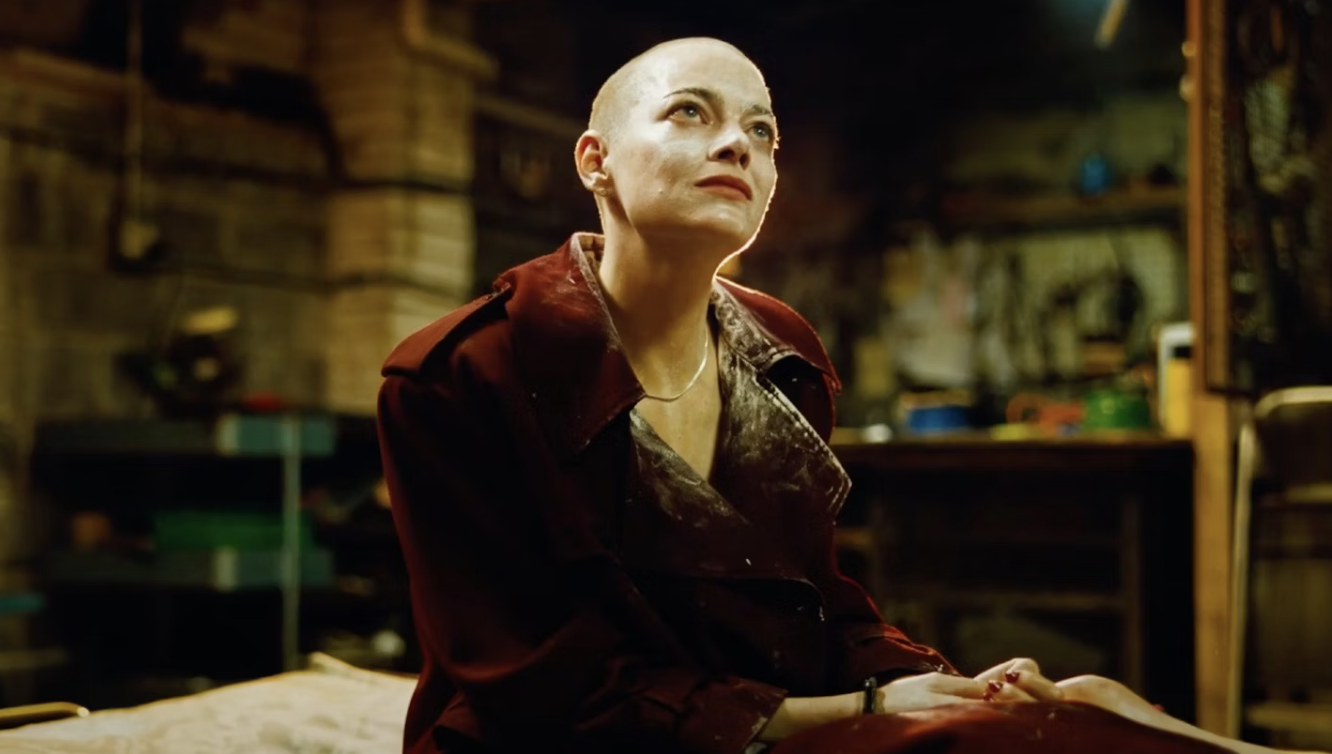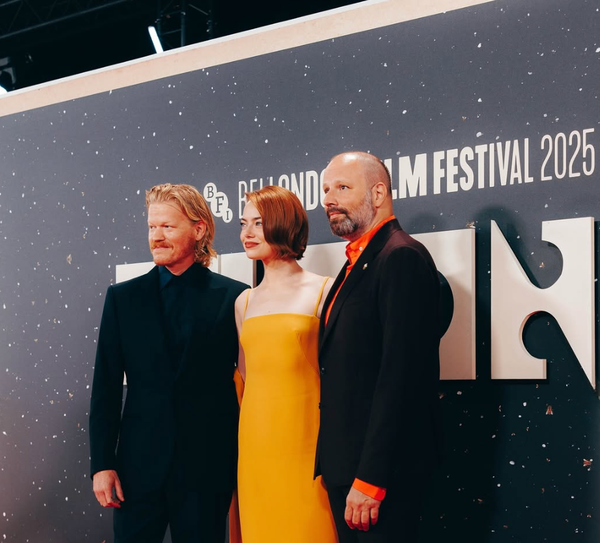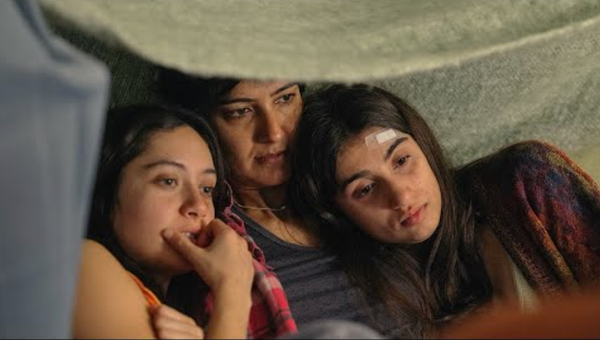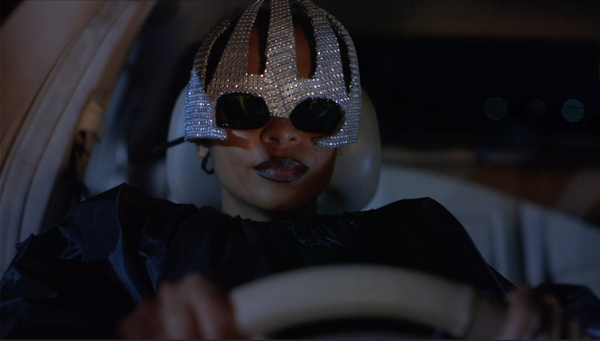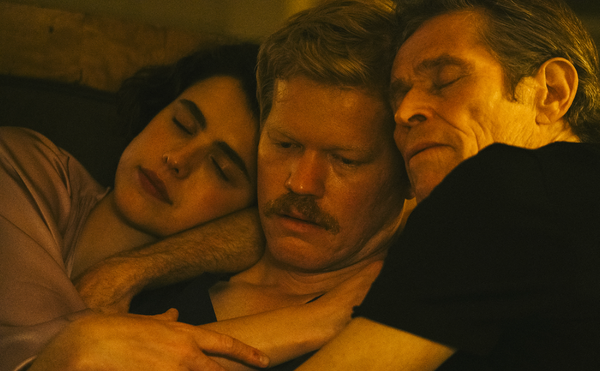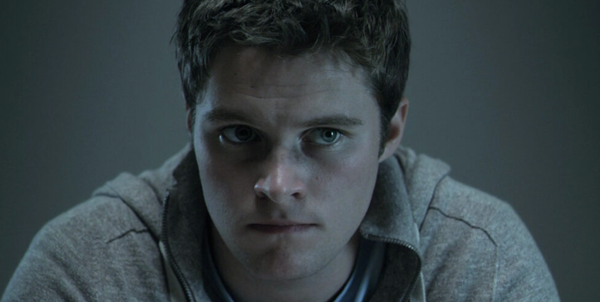Cousins, and amateur beekeepers, Teddy (Jesse Plemons) and Don (Aidan Delbis) have a hive that has begun dying off. Teddy, a conspiracy theorist adrift in the depths of internet paranoia, insists this points toward a much larger problem. That problem being extraterrestrials, or as Teddy calls them, Andromedans. He believes they have systematically infiltrated humanity and convinces his impressionable, younger cousin (who's less capable of critical thought) to help him capture one of the interlopers. An act so bold, it will send a message to the invaders that humanity is not to be messed with.
The extraterrestrial in question: Michelle Fuller (Emma Stone), CEO of a large biomedical corporation. Highly important, she struts through a corridor of glass-doored offices into her lavish corner office. At the end of the workday, Fuller addresses the new company policy. Staff aren’t obligated to stay late, but she isn’t going to discourage anyone willing to go the extra mile. Fuller is a caricature of corporate greed, deliberately so. From the get-go, we're rooting for her to get kidnapped. To this effect, the clumsy mission to nab Michelle from her chic suburban mansion sets the stage for the darkly comic tone struck early on.
Yorgos Lanthimos’ work is often characterised by its eccentric visual style, absurdism, and deadpan humour; that’s all very present in Bugonia. However, despite the otherworldly premise, this film, adapted from Jang Joon-Hwan’s Save the Green Planet (2003), is a slight departure toward a more linear, almost conventional narrative. Yorgos applies his typical stylised approach to a lived-in, very real world. The cousins’ decrepit rural home is framed like a mansion, the wood-panelled walls almost colossal and enveloping. This tiny house is their whole world. Dublin cinematographer Robbie Ryan captures the musty basement like a dungeon. While Michelle sits chained to a filthy mattress, the creaky wooden staircase leading upstairs feels miles away.
As Teddy interrogates Michelle, demanding she send a message back to the “mothership”, the dialogue is pithy and cutting, demonstrating how Michelle rose to her position of power. She’s unlikeable, but clever, soon realising she might be better served feeding into Teddy’s delusion. It’s through the exploration of the pair's intertwining pasts that the narrative takes an ominous turn. The dynamic between Teddy and Don, who is trapped firmly under the thumb of his older cousin, is equally engaging. Don is not fully on board with Teddy's rapidly escalating plot, building the tension as Don debates whether or not to do the right thing for his own sake.
The moments between the three linger to the point where some elements become repetitive. While the film clearly has a lot to say about the American healthcare system, class divides, and humanity as a whole, the ambition of the message means that key elements are lost. The film’s closing moments are sure to be divisive and, while audacious, do pose questions. However, Bugonia is brilliantly visualised, boasts a strong lead performance from Plemons and, ironically, is one of Yorgos’ most down-to-earth films.
Bugonia premiered at the 82nd annual Venice International Film Festival.

